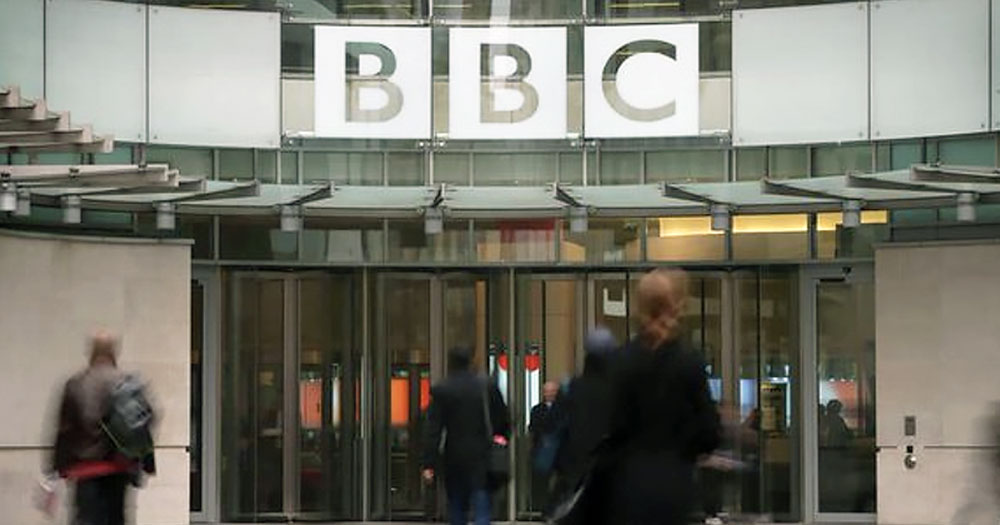The BBC is coming under fire again for its “transphobic reporting” but this time by ILGA-Europe, a leading LGBTQ+ rights organisation.
In their annual review, they warn that the UK’s increasing anti-trans rhetoric is causing “serious damage”. In the ILGA-Europe review, they cited the BBC as a leading agent in “biased motivated speech”.
With the UK experiencing an escalating rise in violence and hate speech over recent years, the review maintains that mainstream media outlets within the UK, on average, report “one or more anti-trans articles every day”.
Behind the smokescreen of anti-LGBTI rhetoric in Europe, there’s a groundswell of allied determination to tackle hatred, as our brand-new #AnnualReview2022 shows.
Find out more and download your own copy at https://t.co/tRpfytqOzF pic.twitter.com/8vAbDouCea
— ILGA-Europe (@ILGAEurope) February 15, 2022
The ILGA-Europe review notes that several LGBTQ+ employees had resigned from the company as a direct result of the BBC’s transphobic reporting.
The BBC came under fire last October after it published an article by Caroline Lowbridge, claiming that there is a “huge problem” for lesbians, who are being pressured into having sex with Trans women. The article also contained strong anti-trans rhetoric and quoted statistics from an online survey conducted via social media, on behalf of a group called ‘Get The L Out’.
Whilst the BBC later redacted comments from one of the contributors from the piece, they still stood by the rest of the article, maintaining that it had been reported in accordance with the BBC’s guidelines of unbiased journalism.
Yesterday, another @BBC article unleashed a further wave of transphobic hate on the community. In response, #CisWithTheT is trending today. You as well can show solidarity to the trans community by posting a msg under the hashtag
— ILGA-Europe (@ILGAEurope) October 27, 2021
The ILGA-Europe review also singled out a 10-part BBC podcast about the UK based LGBTQ+ rights group, Stonewall, stating, “ The BBC for instance, ran an entire smear podcast series on Stonewall.” It goes on to claim that “A number of staff quit the organisation due to such attacks and burnout.”
This is the second year that the UK has been highlighted in the annual review for its rise in anti-trans rhetoric, including attacks on Trans youth and proliferating the TERF war. Serbia and Spain were also noted as increasing the debate between Trans rights and women’s rights.
Positive Outlook
Despite this, the ILGA-Europe review also shows positive trends emerging, “while there was a staggering rise in 2021 of anti-LGBTI rhetoric from politicians and other leaders, fuelling a wave of violence, with anti-LGBTI hate crime reported in every country, the response to this has been an allied determination in many countries, and at the European level, to tackle hatred and exclusion of LGBTI people.
It goes on, “By far the strongest commitment to LGBTI human rights from European Union level came when the European Commission (EC) in July opened landmark infringement procedures against both Hungary and Poland. The European Parliament also adopted its resolution on LGBTIQ rights in the EU, strongly supporting the EC’s objective to propose legislation in several areas of protecting LGBTI rights, and condemning where member states have not been respecting EU law as regards LGBTI rights.”
Katrin Hugendubel, Advocacy Director at ILGA-Europe, asserts that “This report narrates an unparalleled year in Europe, with regional and national institutions and courts taking their obligations to the human rights of LGBTI people with utmost gravity amid the now crystal clear escalation of the instrumentalisation of hatred against LGBTI people for political gain and expanded power. The advance of using hatred of any minority as an instrument of political gain, which we have seen throughout history, must be addressed and halted with allied determination across the region.”
Whilst legislation across Europe may appear to be impeding LGBTQ+ rights, the review claims that this does not reflect popular opinion, including in countries with the most oppressive legislation such as Russia, Poland and Hungary.
According to the report, “A representative poll commissioned by Amnesty International Hungary and Háttér Society and conducted by polling agency Medián between 13 and 19 July 2021, found that 73% of Hungarians reject the government’s false claim that gay and lesbian people abuse or harm children.”
© 2022 GCN (Gay Community News). All rights reserved.
Support GCN
GCN is a free, vital resource for Ireland’s LGBTQ+ community since 1988.
GCN is a trading name of National LGBT Federation CLG, a registered charity - Charity Number: 20034580.
GCN relies on the generous support of the community and allies to sustain the crucial work that we do. Producing GCN is costly, and, in an industry which has been hugely impacted by rising costs, we need your support to help sustain and grow this vital resource.
Supporting GCN for as little as €1.99 per month will help us continue our work as Ireland’s free, independent LGBTQ+ media.
